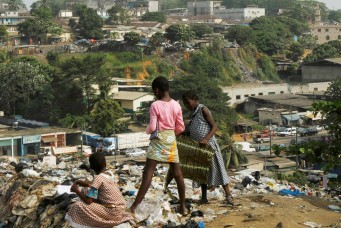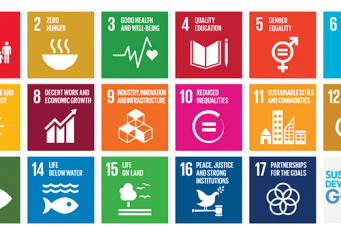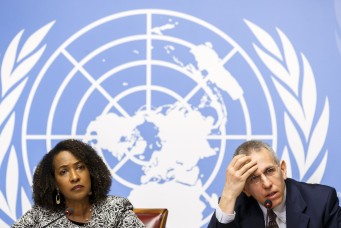Africa, Famine and Solutions
In the quest for solutions, here’s a deceptively simple idea: provide Africans with better business education.
How will the cycle of famine in Africa finally come to an end? Once more, we’re watching the horrific images of emaciated children in the arms of mothers who can do little more than hold them. This is in Somalia, Ethiopia, and areas of Kenya, where the United Nations World Food Programme estimates thirteen million people are threatened by the effects of a summer drought and political turmoil. The hunger in the Horn of Africa is a sign of a food crisis spreading across much of the continent. In January, global food prices reached their highest point since the United Nations Food and Agriculture Organization began indexing them in the 1990s. That seemed to be more bad news for Africa, whose population is rapidly growing.
In the quest for solutions, here’s a deceptively simple idea: provide Africans with better business education.
Jonathan Cook, a senior lecturer in business at the University of Pretoria, argues that underlying problems like blockage in supply chains, ineffectual management, and a dearth of innovation in agribusiness can be effectively addressed by a new generation of Africans trained in innovative business schools. “I think it is business schools that can stand in the creative space, between agriculture, as an area of research and development, and business, which is who buys what is produced,” he says.
Cook participated with political figures, academics, and entrepreneurs in “Food Crisis Challenges and Opportunities for Supply Chain Excellence in Africa,” a round table hosted in October by the School of Business at the American University in Cairo. The immediate need, he believes, is to make curricula strongly relevant to local conditions and challenges. He notes that there are 774 business and training degree and certificate programs available in African universities, yet relatively few of them offer programs in agribusiness or supply-chain management.
An important challenge that African business schools can help tackle is the new “scramble for Africa,” the drive by Chinese and Indian megacompanies to secure agriculture deals on a continent that contains 60 percent of the world’s remaining unused or underused arable land. It’s crucial, insists David Abdulai, executive director of the Graduate School of Business Leadership at the University of South Africa, that business schools inculcate a sense of sustainable development.
For example, he explains, graduates need to be equipped with the business and legal tools to negotiate national development benefits in exchange for foreign investment in the agriculture sector. “They should be able to say, ‘Okay, a certain percentage of what you are doing should have to do with technology transfer, and should have to do with selling a certain amount of X in the market, rather than taking everything with you,’” he says.
Another area in which business schools can advance solutions is the production of information about African markets, says Nagla Rizk, associate dean of graduate studies and research at AUC’s business school. Such knowledge, for example, could help devise better crop irrigation, planting, and storage strategies. “A country’s access to knowledge, their systems of informal innovation, if they have balanced intellectual property systems, or if there is incentive for collaborative projects and for science, are all examples of the informal metrics that lead to better local information and solutions,” says Rizk.
Cook brushes aside concerns that Africa’s population boom will deepen the continent’s food crisis. He supports the theory that, like Asia, Africa could enjoy a “demographic dividend”—an opportunity to spur economic growth through the labor of a large able-bodied generation. What he’d like to see is a boom in the number of business schools, too. “There are thousands of business schools around India and around China,” says Cook, who chairs the Association of African Business Schools. “There need to be more of us here as well.”




